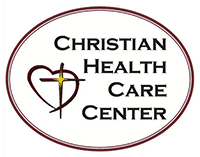Certified wound care nurses in a long-term care center play a crucial role in the assessment, treatment and management of various types of wounds that residents may develop. At CHCC in Lynden, their primary responsibility is to promote the healing of wounds while preventing complications and infections. Below is a detailed explanation of what a wound care nurse does in a long-term care setting.
Assessment. The wound care nurse begins by assessing the resident’s wound. This involves examining the wound’s size, depth, location and characteristics, such as its stage (e.g., stage I to IV pressure injuries), presence of infection, drainage and surrounding tissue condition. They also consider the resident’s overall health and medical history to create a personalized care plan.
Treatment planning. Based on the assessment, the wound care nurse develops an individualized treatment plan tailored to the resident’s specific needs. This plan outlines the type of wound care, dressing changes and interventions required to promote healing.
Wound dressing and care. The wound care nurse is responsible for cleaning, debriding (if necessary), and dressing the wound using appropriate wound care products. They ensure that dressings are applied correctly, maintain an aseptic environment and address any concerns related to pain management.
Infection control. Preventing and managing infections is a critical aspect of wound care. The wound care nurse monitors for signs of infection, such as increased redness, warmth and swelling. They take appropriate measures, which may include wound culture sampling and antibiotic administration.
Education. Wound care nurses educate residents, their families and other health care team members about the importance of proper wound care and prevention strategies. They provide instructions on wound care techniques, dressing changes and hygiene to ensure continuity of care.
Monitoring and documentation. Accurate documentation of wound assessments, treatment plans, progress and any complications is essential. Certified wound care nurses maintain detailed records to track changes in wound status and evaluate the effectiveness of the chosen interventions.
Pressure injury prevention. In long-term care, preventing pressure injuries (ulcers or bedsores) is a significant part of the wound care nurse’s role. They assess residents’ risk factors, implement preventive measures (such as repositioning, specialized mattresses and cushions) and continuously monitor skin integrity.

Collaborative care. Wound care nurses work closely with other health care professionals, including physicians, physical therapists and dietitians, to ensure comprehensive care for residents. They may consult with specialists if necessary, such as wound care specialists or infectious disease experts.
Quality improvement. Certified wound care nurses often participate in quality improvement initiatives to enhance wound care practices within the long-term care facility. They may contribute to the development of guidelines and protocols for wound management.
Emotional support. Providing emotional support to residents and their families is also part of the job. Coping with chronic wounds can be challenging, and wound care nurses offer reassurance and guidance throughout the healing process.
In summary, wound care nurses in a long-term care setting, like Heather Lewis, RN, WCC; Karen Jemison, RN, WCC; and Joy Kim, RN, WCC, at Christian Health Care Center, play a pivotal role in the assessment, treatment and prevention of wounds. Their expertise ensures that our residents receive optimal wound care, promoting healing and improving the overall quality of life.
